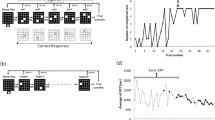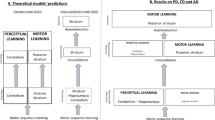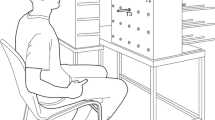Abstract.
We have been investigating motor control and learning in parkinsonian subjects. In the current study, we sought to explore the existence of deficits in procedural motor learning, which is a form of implicit motor learning where skill improves over repetitive blocks of trials. We sought to determine, in particular, whether any such deficit is accentuated during specific types or phases of learning. We would expect that those specific learning tasks would require the greatest participation of the basal ganglia. Numerous studies have found that Parkinson's disease (PD) patients may show deficits in learning. Combined with information about basal ganglia neuronal connections and activity, this led some investigators to suggest that one of the key functions of the basal ganglia is to facilitate learning. To investigate these learning deficits, we used a robotic device to generate conservative force fields that disturbed the subjects' arm movements, thereby generating a "virtual mechanical environment" that subjects learned to manipulate. Movements were successively grouped into blocks comprising five different conditions: motor performance, early learning, late learning, negative transfer, and aftereffect motor performance. Our results with eight right-handed PD subjects and nine age-matched controls showed a relative decrease in the rate of learning for the PD patients in all blocks, but greater differences emerged between groups during novelty phases of learning. In particular, the difference in performance during the negative transfer condition reached statistical significance, suggesting that the basal ganglia might be a key center for "switching" motor patterns. Our results support the hypothesis that deficiencies in procedural motor learning are characteristic of PD. They add to existing evidence which has suggested a key role for the basal ganglia when new sensorimotor mappings are required by novel task environments. Better understanding of these deficits should facilitate the rehabilitation of PD patients.
Similar content being viewed by others
Author information
Authors and Affiliations
Additional information
Electronic Publication
Rights and permissions
About this article
Cite this article
Krebs, .H., Hogan, .N., Hening, .W. et al. Procedural motor learning in Parkinson's disease. Exp Brain Res 141, 425–437 (2001). https://doi.org/10.1007/s002210100871
Received:
Accepted:
Issue Date:
DOI: https://doi.org/10.1007/s002210100871




